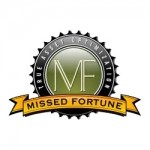
Missed Fortune
The Missed Fortune series of workshops and educational materials on asset management focuses on the benefits of liquidity in financial management. Over 38 years in financial management, Missed Fortune ’s Doug Andrew has seen the profound impact taxes can have on an individual’s earning potential. For this reason, he has structured the Missed Fortune series to center on the importance of tax-free strategies.
According to Andrew, many individuals focus on taxed as withdrawn accounts, figuring by the time the tax is owed they will fall into a lower tax bracket. As Missed Fortune’s materials explain, most states have a state income tax. The average married couple filing a joint tax return in 2012 with a combined income of more than $70,700 paid not only 25% in federal tax, Missed Fortune’s Andrew says, but also in 41 states, as much as 10% in state tax.
In states with both state and federal income taxes, Missed Fortune points out that a taxpayer can pay 33% to 45% in taxes alone. This significantly decreases an individual’s earnings, Andrew says. The difference between the super-wealthy of the world and most other people is that those individuals understand compound interest in a tax-favored environment, says the Missed Fortune founder. They understand safe, positive leverage, which is the ability to own and control assets with very little of one’s own money at risk.
While Missed Fortune ’s Doug Andrew is seriously interested in accumulating cash in a tax-free environment that will earn a predictable rate of return of eight percent, he wants to do it under a tax-free umbrella. As Andrew explains in the Missed Fortune workshops, he not only accumulates his money completely tax free, but he also ensures when he someday withdraws that money, it will be tax-free as well.
Some individuals choose to try do this by postponing the taxes through a IRA or 401k, but the Missed Fortune founder points out that if he has a million-dollar nest egg, he’ll be paying as much as forty percent in taxes on it–which means he’ll only net $666,000. Taking this line of reasoning further, it means that money he had in that IRA or 401k not only isn’t completely his own money, but it never was in the first place. One-third of that money always belonged to Uncle Sam, Missed Fortune explains. And while Uncle Sam let you use that one-third on the front end, he always intended to charge you one-third on the back end.
Many retirees are now learning there is a problem with paying on the back end, the Missed Fortune founder points out. Those who paid into their retirement account years ago, with the plan to pay taxes at the end, are now finding that they aren’t in a lower tax bracket. Actually, says Missed Fortune ’s Andrew, most of them are finding they’re in a higher tax bracket than they’ve ever been–with even with less income. According to the Missed Fortune workshop, this is because retirees usually lack the deductions they had when they were younger and working—home mortgage deductions, deductions for investments in IRAs and 401ks, and deductions for dependents, who are now grown.
Learn more by visiting Missed Fortune online at www.missedfortune.com
